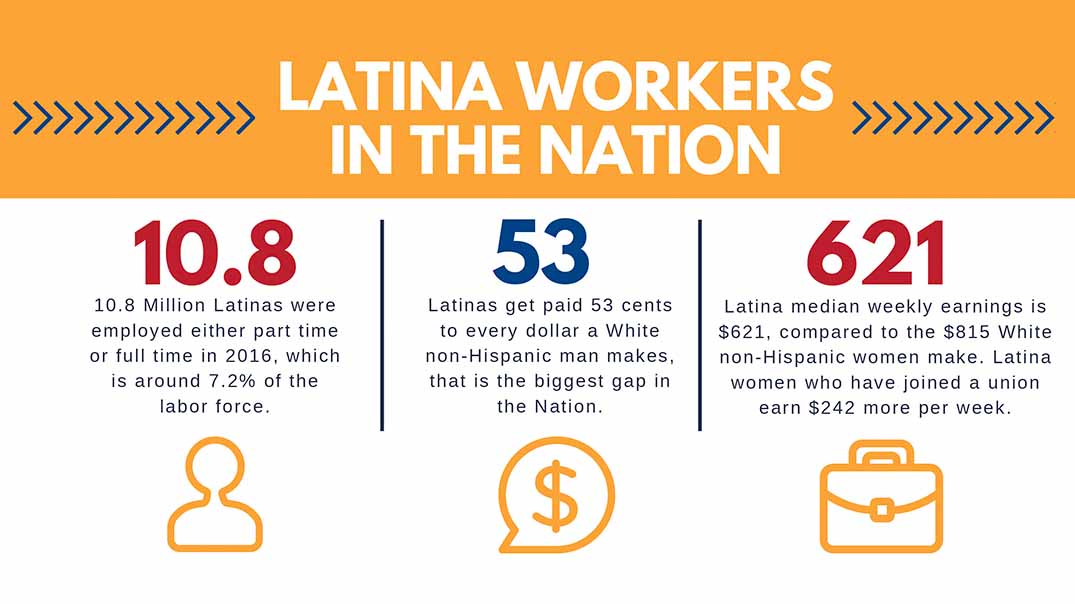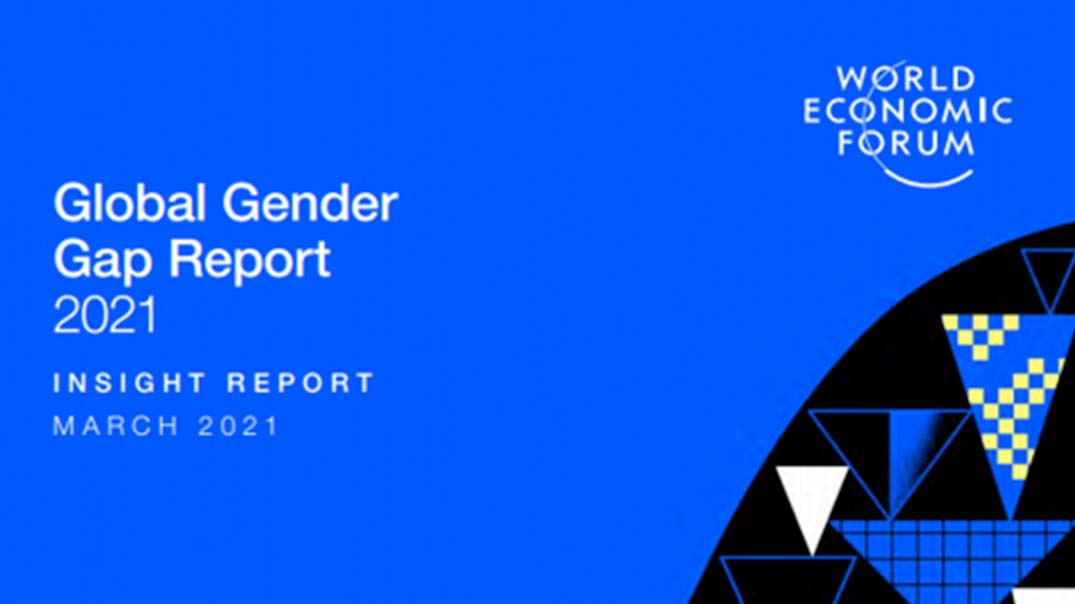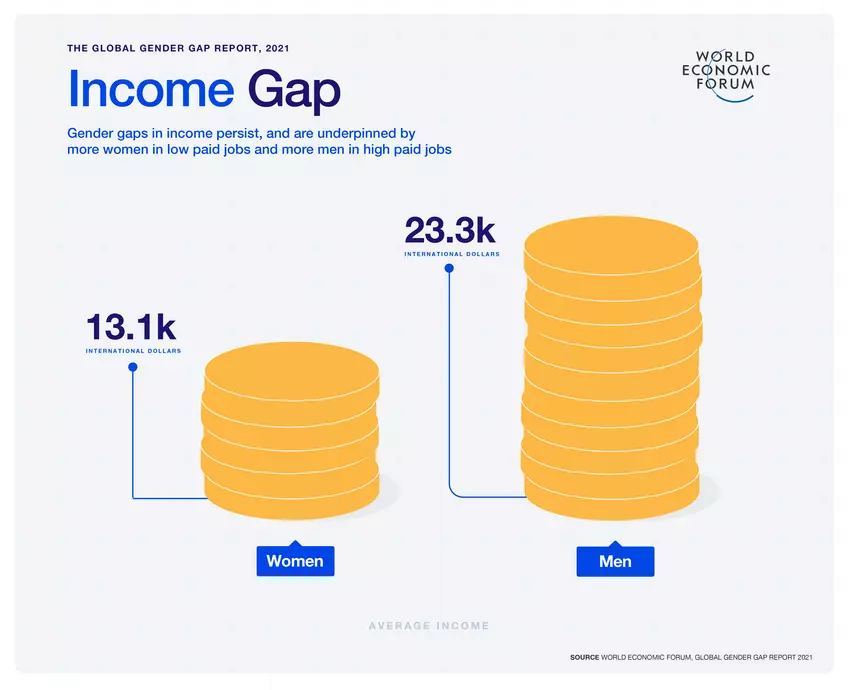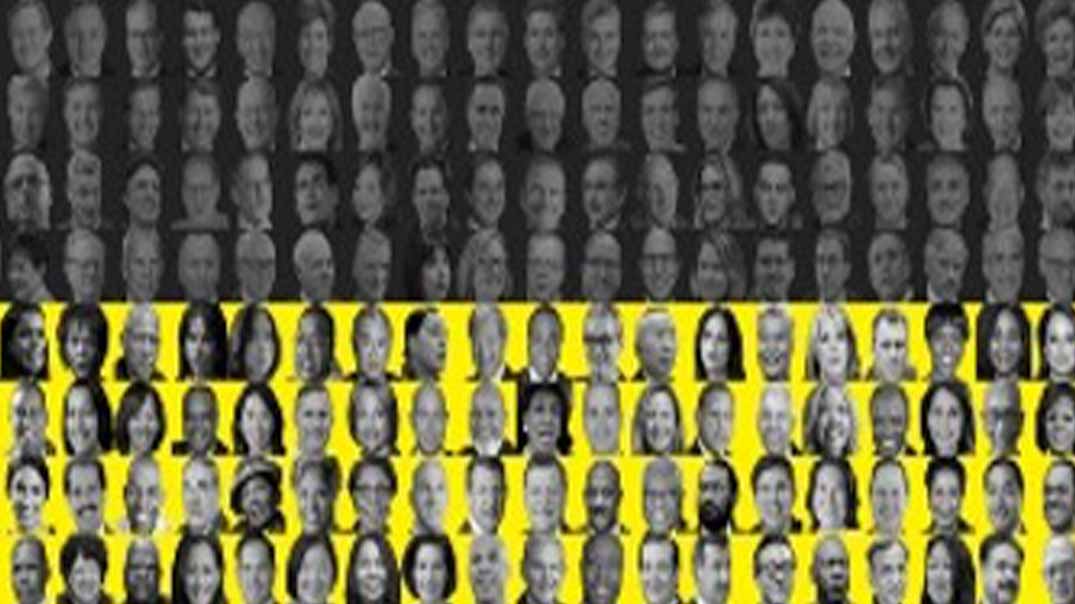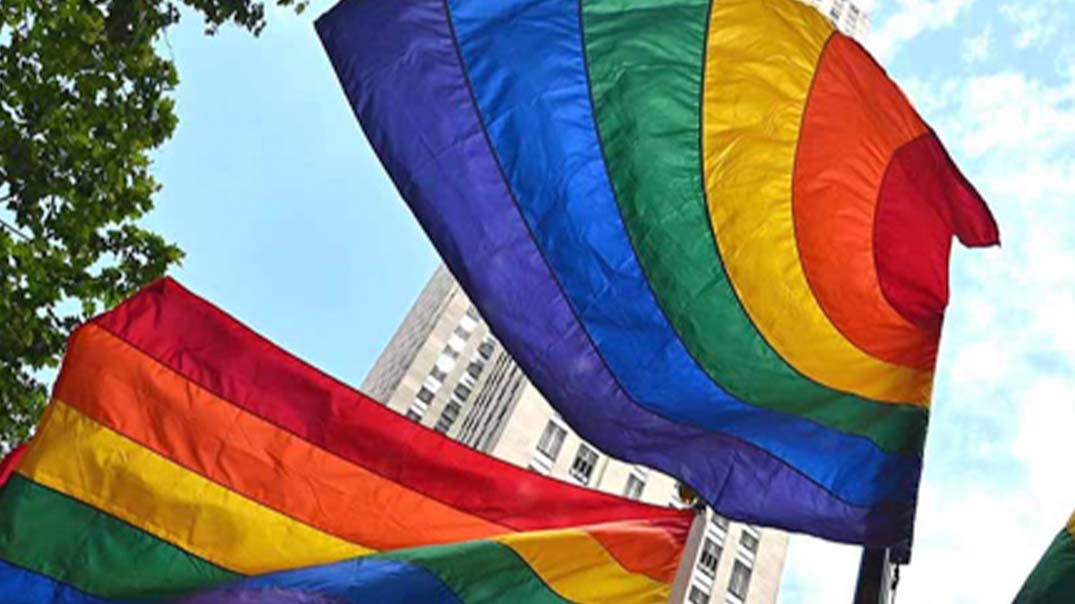Leadership & Other Data
LATINA WORKERS IN THE NATION
Latinas earn 53 cents for every dollar earned by a white, non-Hispanic man. This info graphic from the Labor Council for Latin American Advancement provides essential info on Latina workers.
Category: Ethnicity, Gender, Intersectionality
IMPACT OF COVID-19 ON LATIN WORKERS
Many of the industries that have been hardest hit by COVID (e.g., travel and hospitality) also have high concentrations of Latin workers. In January 2021, the unemployment rate for Latin workers was 4.2 percentage points higher than pre-COVID levels, compared to 3.6 percentage points higher for Black workers and 2.5 percentage points higher for white workers.
See the full report from the Center for American Progress
Category: Ethnicity, Intersectionality
GLOBAL GENDER GAP REPORT, 2021
The Global Gender Gap Report looks at the status of women around the world. They collect the same information from about 150 countries, so we can make national comparisons. And they've been publishing the report annually since 2006, so we can see how things have changed over time.
Looking at these trends, the authors concluded: "None of us will see gender parity in our lifetimes, and nor likely will many of our children. That's the sobering finding of the Global Gender Gap Report, 2020, which reveals that gender parity will not be attained for 99.5 years.
- The 2021 report includes these findings:
The countries with the smallest gender gaps (i.e., closest to equality) are:
- Iceland (the top-ranked country for 12 years)
- Finland
- Norway
- New Zealand
- Sweden
-
The U.S. ranks 30th out of 156 countries covered in the report this year. The report looks at gender equality in four categories. The U.S. rates high on two of them – health and education. But in the U.S., there remains a significant gap in economic parity (including wages) and political empowerment. One of the four measures of political empowerment is the number of years a country has had a female head of state. For the U.S., that number is zero.
-
This graphic captures the worldwide gap in income:
-
There's a lot more to explore in the full report, including the country-by-country information. The data for the U.S. are on pages 387-88.
Read the full Global Gender Gap Report
Category: Gender
FACES OF POWER: 80% ARE WHITE, EVEN AS U.S. BECOMES MORE DIVERSE
Here's a look at the faces of powerful people in the U.S.
This article focuses on how few are people of color. Also consider how few are women. (Note: the article is from September 2020. A lot has changed since then, especially since the November 2020 election.)
Read the New York Times article
Category: Race, intersectionality
GALLUP POLL: LGBT IDENTIFICATION RISES TO 5.6% IN LATEST U.S. ESTIMATE
In general, we don't have as much data as we'd like about LGBT workers, at least not high-quality data that is based on a national sample and collected regularly. One such survey reports that 5.6 percent of Americans identify as LGBT, 86.7 percent identify as straight, and 7.6 percent did not answer the question when asked.
Category: LGBTQIA+


